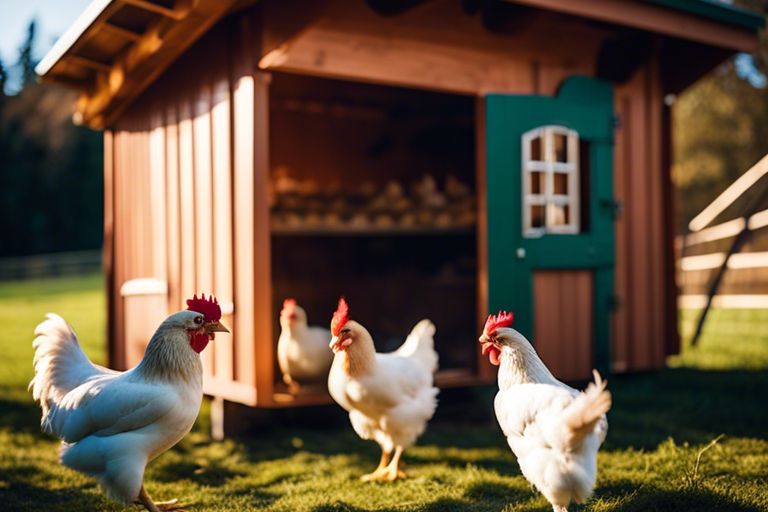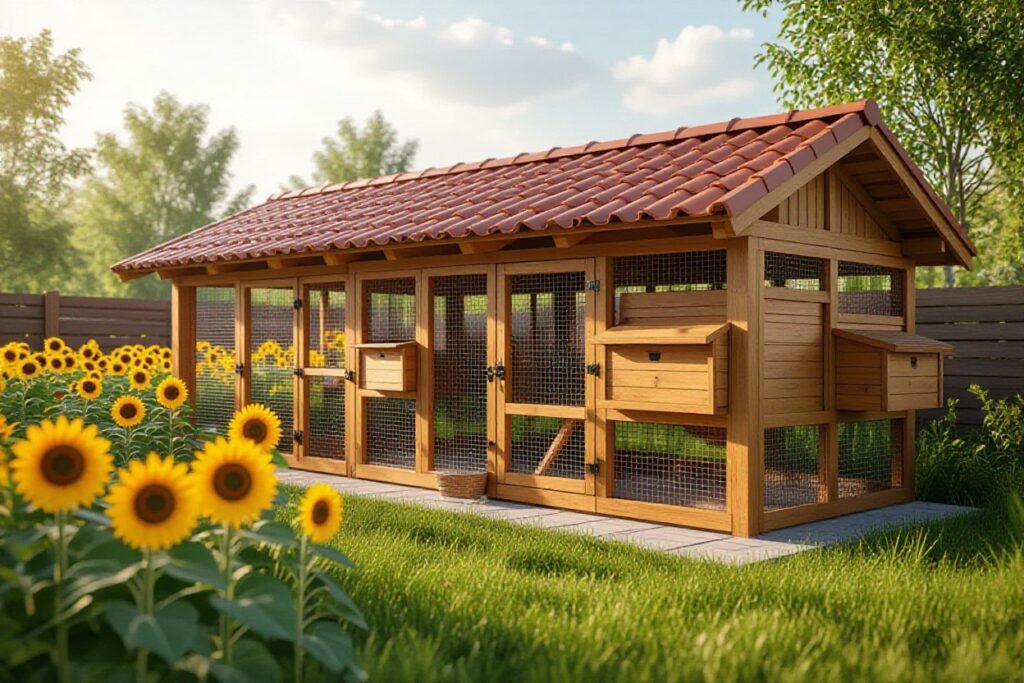Many backyard chicken owners prioritize creating a safe and clean coop environment for their feathered friends. A well-maintained coop not only promotes the health and well-being of the chickens but also helps to prevent the spread of diseases and pests. In this post, we will provide valuable tips and guidelines on how to establish and maintain a safe and clean coop environment for your chickens.
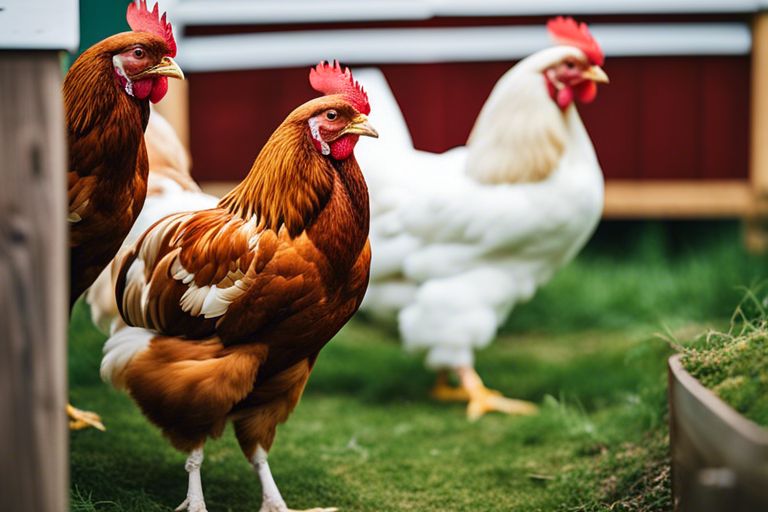
Basic Coop Design Considerations
Size and Space Requirements
While designing a chicken coop, it is crucial to consider the size and space requirements for your feathered friends. A general rule of thumb is to allow at least 2-4 square feet of space per chicken inside the coop, and 8-10 square feet in the outdoor run area. This ensures that the chickens have enough room to move around freely and prevents overcrowding, which can lead to stress and health issues.
Choosing the Right Materials for Construction
Designing your coop with the right materials is important for creating a safe and clean environment for your chickens. Opt for materials that are durable, easy to clean, and predator-resistant. Common options include pressure-treated wood, metal hardware cloth for windows and vents, and asphalt shingles for the roof. These materials not only provide protection from the elements but also help in keeping predators at bay, ensuring the safety of your flock.
Avoid using materials that may contain harmful chemicals or toxins, as these can pose a health risk to your chickens. Additionally, make sure the materials you choose are well-suited for the climate in your area, providing adequate insulation and protection from extreme weather conditions.
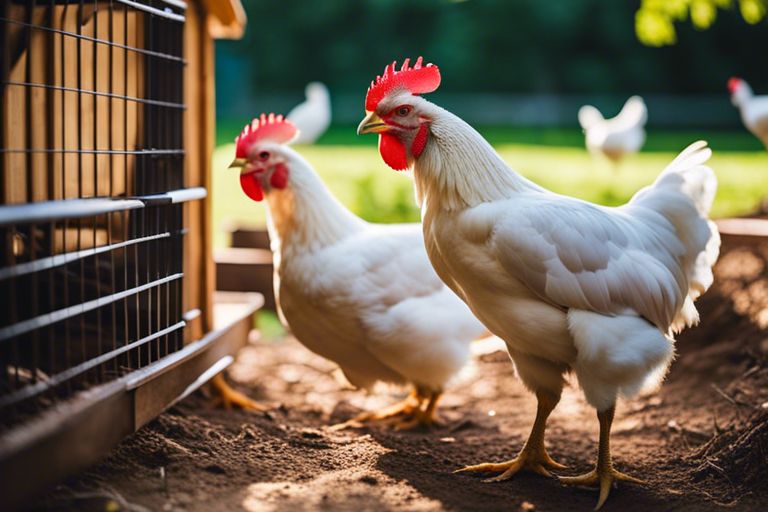
Maintaining Coop Hygiene
Daily Cleaning Routines
Cleaning the coop daily is vital for maintaining a safe and clean environment for your flock. Remove soiled bedding, droppings, and any leftover feed to prevent the buildup of ammonia and bacteria. This simple routine helps reduce the risk of diseases and keeps your chickens healthy and happy.
Deep Cleaning Strategies
Regular deep cleaning is also crucial to ensure a healthy living space for your chickens. Consider doing a deep clean every season or as needed, depending on the size of your coop and the number of chickens. This involves thoroughly scrubbing and disinfecting all surfaces, replacing bedding, and inspecting for any signs of pests or mold. Deep cleaning helps eliminate hidden sources of contamination and promotes better air quality in the coop.
Note, a clean coop is a happy coop, and maintaining proper hygiene practices is key to ensuring the well-being of your feathered friends. By incorporating daily cleaning routines and deep cleaning strategies into your coop maintenance, you will create a safe and sanitary environment that promotes the health of your flock.
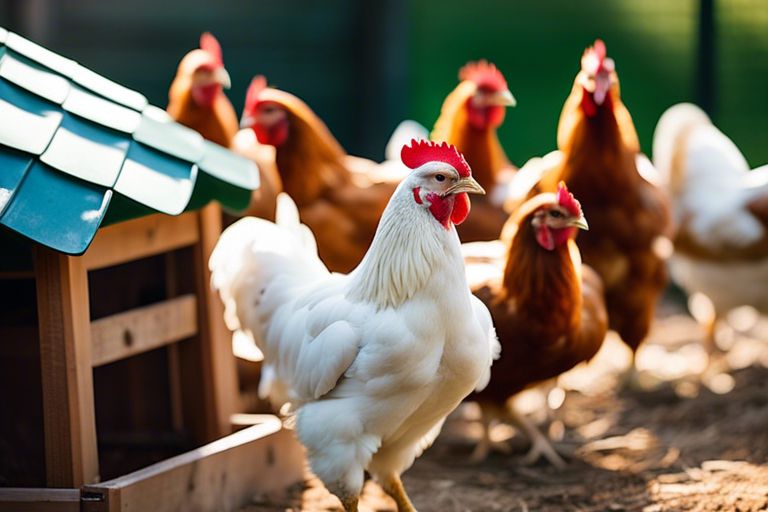
Disease Prevention and Health Management
Identifying and Preventing Common Coop Pests
Preventing common coop pests such as mites, lice, and rodents is crucial in maintaining a healthy coop environment. Regularly inspect your coop for any signs of infestation, such as eggshell damage, feather loss, or visible pests. Implementing preventative measures like keeping the coop clean, using diatomaceous earth or pest-resistant coop materials, and practicing good biosecurity measures can help keep pests at bay.
Monitoring Bird Health and Wellbeing
With regular health checks and observation, you can monitor your birds’ overall wellbeing and quickly address any potential health issues. Look out for signs of illness such as lethargy, abnormal breathing, changes in appetite, or abnormal droppings. Keep a close eye on your birds’ behavior and appearance to ensure they are healthy and thriving.
Another important aspect of monitoring bird health is to establish a relationship with a poultry veterinarian. A professional can provide guidance on preventative care, vaccination schedules, and treatment options for common poultry diseases. Having a veterinarian on call can be invaluable in maintaining the health of your flock.
Coop Security Measures
Protecting Your Flock from Predators
On the top of the list for coop security measures is protecting your flock from predators. Predators such as foxes, raccoons, and even neighborhood dogs pose a threat to your chickens. Ensure your coop is secure by using sturdy locks, burying wire mesh around the perimeter to prevent digging, and installing motion-sensor lights to deter nocturnal visitors.
Ensuring Coop Durability Against Weather Elements
For ensuring coop durability against weather elements, selecting the right materials is crucial. Opt for weather-resistant wood, such as cedar or redwood, and regularly apply weatherproof coatings to protect against rain and humidity. Additionally, inspect the roof for any leaks or damage, and reinforce it with quality sealing to prevent water from seeping in during heavy rains.
Flock
It is important to regularly inspect your coop for any signs of wear and tear, especially after extreme weather conditions. Repair any damages promptly to prevent them from worsening and compromising the safety and comfort of your flock. By taking proactive steps to ensure coop security and durability, you can create a safe and clean environment for your chickens to thrive.
Summing up
Considering all points, creating a safe and clean coop environment for your chickens is imperative for their health and well-being. By following the tips mentioned, such as regular cleaning, proper ventilation, and predator-proofing your coop, you can ensure that your flock stays healthy and happy. By prioritizing cleanliness and safety in your coop, you are not only protecting your chickens but also creating a more enjoyable environment for both you and your feathered friends.
FAQ
Q: Why is creating a safe and clean coop environment important?
A: Creating a safe and clean coop environment is crucial for the health and well-being of your chickens. It helps prevent diseases, reduces stress, and promotes healthy egg production.
Q: How often should I clean the coop?
A: The coop should be cleaned at least once a week to remove droppings, soiled bedding, and any food waste. Regular cleaning helps prevent the buildup of harmful bacteria and parasites.
Q: What bedding material is best for a chicken coop?
A: Pine shavings or straw are excellent choices for coop bedding. They are absorbent, provide insulation, and are comfortable for chickens to walk and nest on.
Q: How can I prevent mites and other parasites in the coop?
A: Regularly cleaning and inspecting the coop is key to preventing mites and other parasites. Additionally, you can use diatomaceous earth or herbal remedies as natural pest control methods.
Q: What should I include in a first aid kit for my chickens?
A: A chicken first aid kit should include basics such as bandages, antiseptic ointment, scissors, gloves, and electrolytes. It’s important to have these supplies on hand for emergencies.
Q: How can I improve ventilation in the coop?
A: Good ventilation is crucial for a healthy coop environment. You can improve ventilation by adding windows, vents, or exhaust fans to ensure proper airflow and reduce moisture buildup.
Q: What measures can I take to secure the coop from predators?
A: To protect your chickens from predators, ensure the coop is securely fenced with hardware cloth buried around the perimeter. Install latches, locks, and motion-activated lights for added security.
